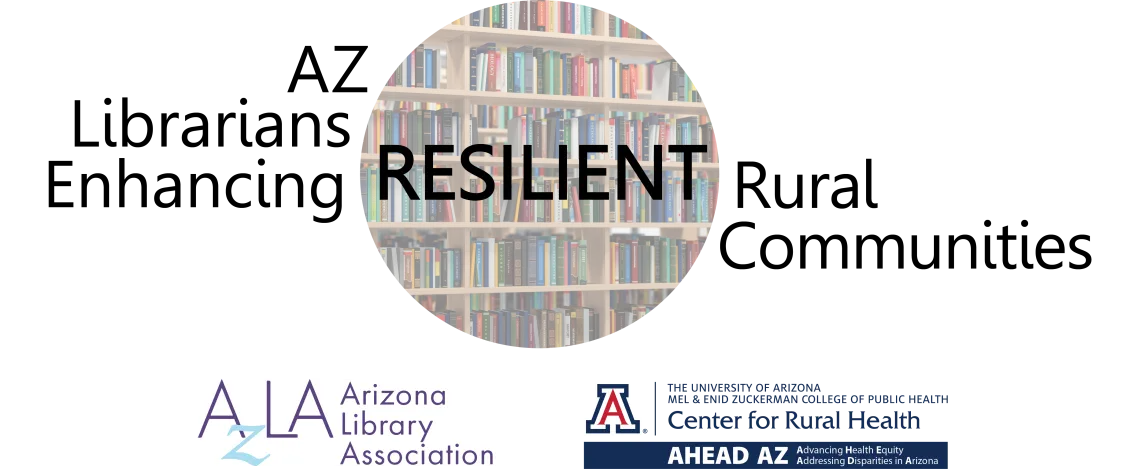
The AZ Librarians Enhancing Resilience in Rural Communities Initiative is a partnership between the Arizona Center for Rural Health (AzCRH) and the Arizona Library Association (AzLA). The aim of the program is to support rural libraries in community efforts enhance local resilience, address inequities, and build community cohesion. The COVID-19 pandemic has underscored the role of libraries and their staff in linking individuals, neighborhoods, and communities with much needed information, resources, and services.
Through this initiative, the AzCRH and AzLA provides capacity-building training and education to libraries interested in enhancing local communities’ ability to respond to disasters and events that have the potential to disrupt livelihoods and adversely impact human health and well-being. Housed under the COVID-19 AHEAD grant, this program fosters partnerships between libraries and local communities to address inequities related to healthcare access, technology divide, food insecurity, health literacy, and health and well-being.
To accomplish this mission, a Request for Proposals (RFP) has been initiated to support the implementation of innovative projects by “small and rural” public libraries in Arizona with the aim of reducing health and health-related disparities in their communities.
For questions, please contact Lisa Lewis (president@azla.org) or Laura Schweers (schweers@arizona.edu; 520-621-6587 voicemail)
Mini-Grant Details:
- Award amount: $4,000/grantee
- Anticipated number of grantees: 24
- Applications are being accepted through August 14, 2023
- Selection notification will be sent via email: August 21, 2023
- Project period:September 1, 2023 - April 30, 2024 (8 months)
Available funding for this opportunity encompasses the following priority areas that seek to reduce health and health-related disparities in rural populations in Arizona that may be disproportionately affected by inequities stemming from structural policies.
- Improving Access to Healthcare & Related Services
- Promoting Health & Well-being
- Addressing Social Protective / Risk Factors

